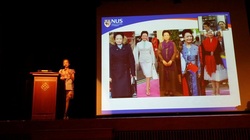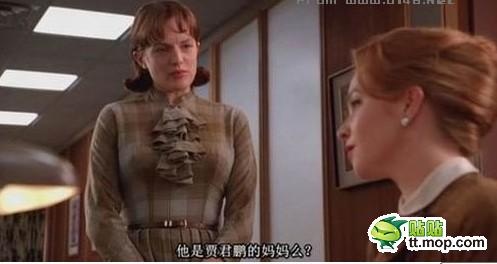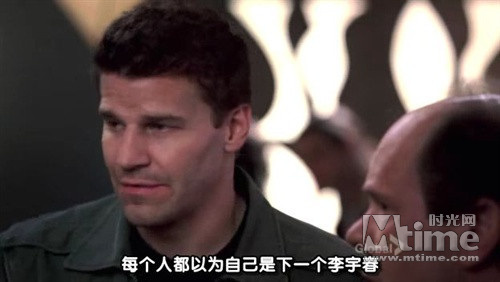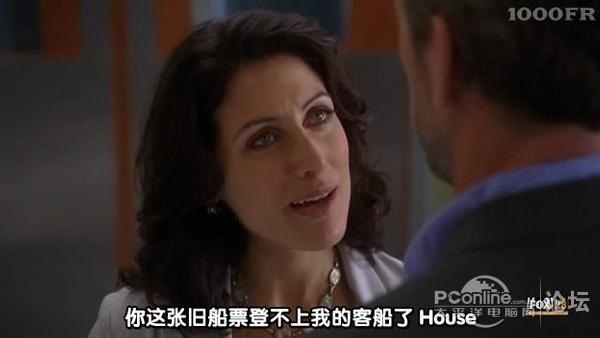 It was my great honor to be invited to make a spotlight presentation for the Chinese Internet Research Conference held at Hong Kong Polytech University this year! Thanks to David Herold, the organizers, and the steering committee for the flattering and daunting task! I still vividly remember that in 2007, I was also very fortunate to be given the top student paper when CIRC was held in Texas A&M hosted by Randy Kluver. Now seven years later, I ask myself what better I can offer to the community. I am not sure whether I have become a better researcher but at least, I am no longer alone. This time I have two fabulous collaborators, Dai Jia and Yang Tian, both from Tsinghua University. Their diligent working attitude and generous support have been the most critical reason why the paper is all possible. I opened the presentation with an example of China's current first lady, Peng Liyuan. While the international society sees Peng as the first ever Chinese first lady who can rival Obama's Michelle, many Chinese know Peng as a popular star. She has appeared in the first ever Spring Festival Gala and since then, her songs have been hits in China. Some media reports praise her for enhancing the national image by smiling and posing to the cameras. And for many Chinese, the fact that we know her, or her voice, so well has brought a sense of familiarity to the new leadership. Both the internal and external roles Peng has played in China's political life have every thing to do with her life of being a popular singer. I continued saying that this is definitely not just a Chinese case. The blurring boundary between popular culture and politics has been witnessed around the world. This observation has brought some scholars a great deal of uneasiness. Popular culture turns people from rational citizens to passive spectators, who watch their favorite stars preform but make no actions themselves. They may also become fanatic followers, who blindly do whatever their idols ask them to do. The fascination with celebrities makes citizens pay more attention to superficial qualities such as how one looks or how one speaks, and ignore the substantial criteria of being a politician such as experience, policy ideas, and visions. However, this worry is nothing new. As early as in the Ancient years in China, poets (popular singers at that time) already used poems (popular songs at that time) to mock and criticize the emperors and their empires. I argue that what we should worry about isn't whether popular culture is good or bad for politics (because politics is never simply good or bad). What we should worry about is why we still know so little about popular culture and politics, the endless seeking for pleasure, the strong desire for emotions, the structures of feeling! I argue that it is because our theoretical perspectives to examine politics are limited. One idealistic perspective sees everyday politics as deviant cases from the ideal model of democracy, such as rational debate indicated in Habermasian public sphere. Another realistic but a bit cynical perspective sees politics as power competition. It is all about exchange of interests (e.g., Bourdieu's theory of capitals). It is my argument that we should look at politics as performance. If we take this perspective, our focus is no longer on what is right and what is wrong. Politics is a matter of aesthetics and taste. We should ask, what is preferred, what is enjoyed, what is appreciated. We also would not see politics as a battle between the powerful and the powerless. How does the powerful repress the powerless, how does the powerless fight against the powerful. Instead, we talk about a relationship of performers vs. audiences. The dynamics of this relationship is much more subtle and complicated than simply being a competition among powers. Think about it: A show is not a show without audiences. If we see politics as performance, we may ask why celebrities want to perform politics. An obvious reason is to say celebrities use these political issues to keep their names in news. But why news? Why not the list of parliament members? It is because the importance of mediation is unprecedented nowadays. Although popular culture has always been a part of political communication, what marks our age is the extreme importance of mediation. We now have celebrities who are famous for being famous. They have no distinctive background, they have no outstanding achievement, they are not even pretty. Think about Furong Jiejie. What has made them so well known is the repeated exposure in media coverage. I concluded the theoretical part of this presentation with a research agenda, dictated by the perspective of politics as performance. I ask:
Although there is another methodological point I made about network analysis, I hope readers can stop at the theoretical points and think about how a perspective of politics as performance could inform our inquiry about Chinese Internet. A digital copy of the presentation is not posted in response to the conference audiences' concern of leaking privacy information of the celebrities and their followers. You are always welcome to write to me for the slides!
1 Comment
2013年年初发表在《中国传播学刊》的这篇文章,有幸受到了翻译社群的关注,得到了赵嘉敏(译言创始人)的转发。两个很有趣的网站,政见和北大新媒体也做了这个研究的分享。这些回应都符合我们做学术与现实结合的action research的初衷,在此表示感谢。
CCTV's News Investigation is one of the best practices of journalism in China. Recently they broadcasted an episode on the self-governance of villagers (村民自治). Two very interesting terms emerged from the interview: sea-election vs. sea-fishing (海选 vs. 海捞). I found it extremely difficult to translate the two terms. But I can explain. 海选 means one person one vote and emphasizes the right of electing officials (village-level only). 海捞, as the quote below defined, means that the elected official was selected from a wide range of possible candidates (literally it means being fished out of sea). It emphasizes the accessibility of candidacy. One significant aspect with the basic level democracy (基层民主) is that it allows a procedure of sea-fishing (海捞). The cost of being a candidate at the village level is much lower than that at the higher level (such as county, city, province, and nation), which allows almost any villagers to be able to enter into the game.
村民自治工作面临全国各地阻力_新闻中心_新浪网 陈永喜:我们换届班子选举以后,成立以后,县长来过几次,他说美国新闻周刊记者来采访了,副主任叫陈忠,他说你跟海里捞出来的,叫“海捞”吧,然后费县长说不文雅这个词儿。不文雅,我说海选看怎么样这词儿,他说这个词儿挺文雅就定海选这个词儿。 Chen Yongxi: After the election was done, the head of county came to us several times. He told us that a reporter from American Newsweek Magazine came to interview us. The vice director was Chen Zhong and he said you are like being fished out of the sea, so let's call you "sea-fishing". Then Head Fei said this word is not elegant. Not elegant. So I said how about "sea-election". He thought it is good so we decided to use this word. Other grass-root understandings of democracy and politics are also enlightening. The following are two examples. 海选已经深入到人们的生活_新闻中心_新浪网 张孝敢:我个人认为选举要有程序,它程序的就是民主,民主就是麻烦,所以在选举是一个很麻烦的事。这个我倒是这样认为的,因为本身程序就是民主,没有程序就没有民主。 Zhang Xiaogan: I personally think that election must have a procedure. The procedure is democracy. Democracy is trouble. So election is a troublesome thing. I personally think so. Because procedure itself is democracy. No procedure no democracy. 海选已经深入到人们的生活_新闻中心_新浪网 徐谦:你像村民的民主意识,民主能力,法治观念,法治水平,它要在实践中去锻炼去提高,就像一个人似的,不让他走路,他怎么会走路?他必须要通过走路他才能越来越熟练。 Xu Qian: Things like the democratic awareness, the democratic ability, the idea of the rule of law, and the level of ruling by law, they all need to be improved in practices. It is like a person. If you don't let him walk, how can he learn how to walk? He must get skilled by practicing the skill of walk. Nanjing, a medium-size city besides the Yangzi River, recently opened up an online public forum to elicit inputs from citizens on the city's development. This kind of "government-initiated consultation" is nothing new.
When I was an intern reporter for the city newspaper in 1999, I was invited to audit in a public hearing about the raise of taxi fares. We had a representative of taxi drivers, a representative of citizens, a representative of taxi companies and several government officials. The discussion was heated but very polite. The citizen representative listed many concerns to object the raise. The driver had his own arguments. The officials were always referred to with respect and they acted more like a judge rather than a participant whose interest is affected by the discussion. Another instance also happened during my intern. I was notified that a secret meeting would be held between two local real estate companies which had serious business conflicts. The two companies were the largest in the local market and their conflicts threw significant threats to the city's renovation plan. Governmental officials were present again as a judge to settle the thing. This secret meeting was more confrontal than the previous one. I was forced out when they found out that I am a reporter. The results of the two consultations are quite different. I wrote a story about the taxi fare meeting and soon, the policy was made public: Taxi fares were raised but at a lower rate than the one proposed by drivers and taxi companies. I was not able to write anything about the second meeting because I did not know what they settled on. But in both cases, the city government functioned as a mediator between different parties in the civil society. The mediation in the first case lends legitimacy to the policy-making by showing that the procedure, at lest, looks fair. The second case was not open to the public probably because there was not a policy change that the government has to defend in front of the citizens. The two cases fit nicely to the concept of Authoritarian Deliberation proposed by Min Jiang from UNC-Charlotte. In her presentation for the 6th Chinese Internet Research Conference, she made an excellent point that deliberation does not have to exist under a premise of liberal democracy. Instead, an authoritarian country like China has already incorporated the deliberation mechanism into their governance. But what is new in the current case is that the public forum is hosted in a private website which has no official affiliation with the city hall. The call for advices is directed to a large group of citizens rather than a few representatives. The responses are directly from individual citizens rather than being re-presented by some of them. However, the officials still have the final say. As one of the respondents said, 这种听取人们意见的方式很好,希望能够有始有终,确实落实实际操作中。 This way of listening to advices is great. But I hope there will be a good end of it. The advices can be put into effect in operation. |
Weiyu Zhang
I am an Associate Professor at Department of Communication and New Media, National University of Singapore. Categories
All
Archives
January 2019
|



 RSS Feed
RSS Feed
